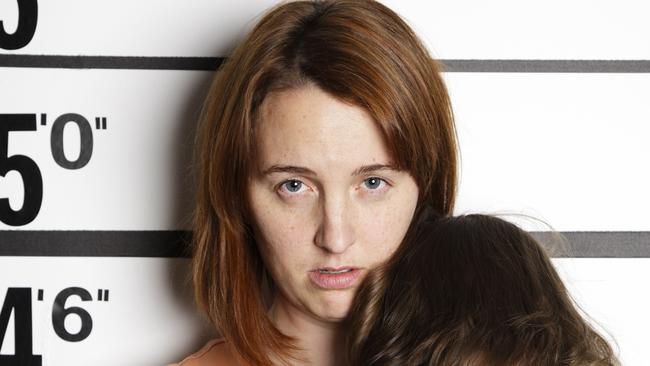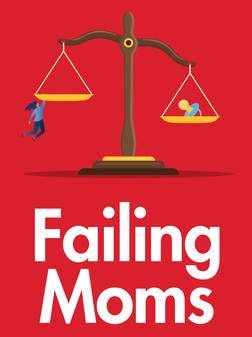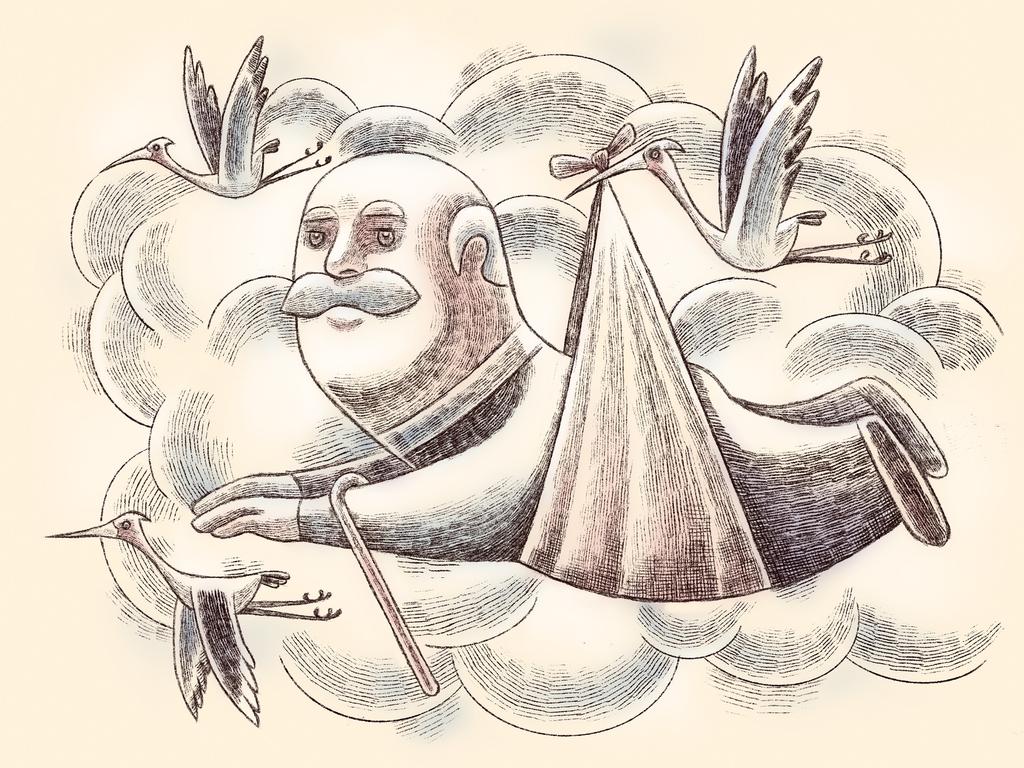Why should women who damage their children be defended?
A new book argues the case for mothers who put children in harm’s way. Why shouldn’t they be responsible for their actions?

Unbeknown to all there, a father I met at a party had been raping his toddler – and however many other children – for years before she mustered the courage to tell her mother. Similarly, a privately-educated man I knew – now in the corporate sector, and who volunteered as a lifeguard – had raped his five-year-old female cousin; her parents never found out. Another pedophile I know – who also works in the corporate sector – is protected by the fact that his victims are too frightened to speak up against him; without their testimony, there is no case.
There are so many others. A former policeman who’d worked undercover told me of Australian underground pedophile networks, men who operate with military co-ordination in amusement parks, cinemas, and other locations where children wander alone and unsupervised. Children in daycare, too, are obvious targets. In June this year, an American daycare worker (female) was charged with the sexual exploitation of children and distribution of child pornography – she photographed them – and in August, an Australian former childcare worker (male) was charged with more than 1600 child abuse offences against 91 children at Sydney, Brisbane, and overseas early learning centres.
The child protection advocacy group Bravehearts reports that in Australia, a child is sexually harmed every two hours. In 2022, the Australian Bureau of Statistics also published alarming findings: some 1.5 million Australians reported having been sexually molested or raped as children. This number does not include those who, for any of an array of reasons (bribery, fear of alienating or hurting family members, shame, threats), lie about childhood sexual abuse. Men in particular are reluctant to reveal information that may have them stigmatised as “weak”.
Yet in Failing Moms: The Social Condemnation and Criminalisation of Mothers, American sociologist and UN consultant Caitlin Killian insists that “controlling” parents are reluctant to leave children without supervision “due to overly heightened concerns about rare and pseudo-dangers”. There is, she says, “little basis to the fears that fuel parental paranoia”.
Throughout her book, Killian disregards terrifying statistics that counter her arguments in favour of whining about sexual politics. Mothers, she insists, are addressed with a gimlet eye at every turn – why, they can’t even be allowed to enjoy their alcoholism in peace! Pregnant women, she writes, “are ultimately excluded from being ill alcoholics and instead thrust back into the camp of moral failing. In admonishing the mothers of FAS (Foetal Alcohol Syndrome) children and babies born testing positive for drugs, all women are warned by their example.”
To illustrate the perniciousness of this slant, Killian quotes a study stating that the “crack baby” scare was, in essence, an urban legend, “the most powerful metaphor for motherhood poisoned by the excesses of the 1970s and 80s, like drugs, self-indulgence, and female self-actualisation run amok ... These babies... had been contaminated by women so selfish, so promiscuous, so insensitive to human life itself that they served as a powerful warning of where children – and the nation itself – would end up if mothers really just said no to their maternal instincts.”
Never mind the fact that the use of cocaine during pregnancy is associated with “significantly” higher odds of preterm delivery, placental displacement, reduced head circumference, small for gestational age, low birth weight, ADHD, prolonged infant suffering, and sometimes death (dos Santos, J.F., de Melo Bastos Cavalcante, C., Barbosa, F. T. et al, 2018, among others).
Unlike Killian, Rita Sports, 74, has had extensive experience with babies born in the throes of crack withdrawal. Between 1992 to 1994, she volunteered for a program at the University Hospital in Philadelphia; the only “crack babies” included were those who weren’t in immediate danger.
“Babies who are born addicted scream long and loud,” she says. “Their fists are tight. Eyes scrunched shut. Little legs straight out. Some have terrible diarrhoea. Many had tremors that caused their little bodies to convulsively shake. It was heartbreaking.” Their mothers had, Sports remembers, been arrested for child endangerment.
Recoiling from the idea of penalisation in such circumstances, Killian writes, “Criminalisation of mothers is couched in supposed protection of foetuses, children, or even the moms themselves, but these rationales are a thin veil for the real purpose: controlling women.”
My question is this: in what way is control the problem when a woman, in full consciousness, deliberately damages the emotional, intellectual or physical potential of a being dependent on her care and protection? Would a man in the same position not be “controlled”? Were Killian to be poisoned, say, resulting in the same set of symptoms that “crack babies” are forced to endure, would she not want the perpetrator penalised? Or are abuse and neglect only crimes in relation to economic contribution? Why should maternal responsibility excuse egregious self-interest when that very self-interest precludes the execution of maternal responsibility?
Critically, why do feminists persist in denying or whitewashing maternal brutality?
In her chapter about the maternal neglect of children, Killian even criticises the penalisation of mothers for leaving their children in the care of violent, short-term partners.
Poverty, she insists, is the real problem.

Really? Was poverty the problem when British mother Verphy Kudi left her 20-month-old daughter Asiah alone in their flat for six days in December 2019 to travel over 150 miles for a concert and parties with her boyfriend, returning to find that her only child, having endured “unimaginable suffering”, had starved to death? Was poverty the problem when, in July this year, a “wealthy” Perth couple starved their “homeschooled” adolescent daughter, leading, as one newspaper reported, to “life-threatening malnutrition, osteoporosis and restricted growth”?
Research commissioned by the City of London Corporation in 2018 found that, far from maternal indifference and malevolence being by-products of economic inequality, wealthy parents use “lawyers, intimidation and powerful connections” to avoid intervention and to bury accusations of abuse and neglect. This long-entrenched bias against the scrutiny of the wealthy results in child abuse being almost universally associated with deprivation and ignorance.
As Professor Claudia Bernard observed, most research and social worker training focuses exclusively on links between child abuse and poverty. “People have these deep-set beliefs that this is happening in poor families, dysfunctional families ... The social workers I spoke to were going into these houses that were so unbelievably affluent, with a fridge as big as a room.”
Killian then cites the superiority of French parenting over that of the “neurotic” and “over-involved”: “What’s different about French moms is that they get back their pre-baby identities, too. For starters, they seem more physically separate from their children ... the French parenting guide, Votre Enfant (Your Child), entreats parents to teach children that they also have a right to pleasure: ‘Thus the child understands that he is not the centre of the world, and this is essential for his [sic] development” ... a mother should not be ‘enslaved’ to her child.”
Really? Is that why in February, a public health agency study found that one in five young people in France suffers from depression, and in June, a study of 3000 French schoolchildren aged six to eleven revealed that 13 per cent have a “probable” mental health problem? Is that why the latest French data shows rising rates of child suicide, particularly among girls?
Tellingly, a 2009 study of academic mothers of young children found that the six themes common to all participants were a sense of vulnerability, isolation, inadequacy, stress, pressure, and lack of structural support (“Swimming Upstream”, Hirakata, P. E., Daniluk, J.C.). Killian, an academic mother, mentions experiencing these issues in the acknowledgments, which makes sense in the context of a book that, for the most part, reads like a justification for the delegation of maternal intimacy in the pursuit of quantifiable results and status.
Perhaps because of this, Failing Moms: The Social Condemnation and Criminalisation of Mothers reads like a divisive, boilerplate feminist monograph – deriding the assiduous protection of the young against demonstrable harms, and devoid of empathy for anyone other than mothers who have never wanted to place their little children at the heart of their lives.
Antonella Gambotto-Burke’s new book is Apple: Sex, Drugs, Motherhood and the Recovery of the Feminine. Follow her on Instagram.
Failing Moms: The Social Condemnation and Criminalisation of Mothers
By Caitlin Killian
Polity
PP256
$36.95







To join the conversation, please log in. Don't have an account? Register
Join the conversation, you are commenting as Logout